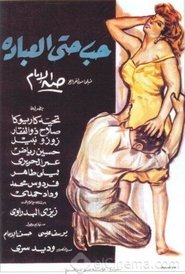Hassan El Imam is an Egyptian director. He was born in the city of Mansoura in 1919, and received his education at a French school in Cairo, but after his father died following a financial crisis, Hassan was forced to work at an early age to provide for his family, and as he was fluent in both English and French, he started working as a translator. He then moved to working in film as an assistant director to Youssef Wahba. El Imam started his directorial career in a period that was dominated by melodramas and tragic stories in film, which was the major influence on his style and aesthetic, and led his films to become blockbusters, despite the constant panning from critics even after his death. El Imam's directorial debut was “Mala'ikat Gohanam” (Hell's Angels) in 1946. His most famous films from this period include: “Al Yatimatan” (The Two Orphans) (1948), “Zalamoony Elnas” (People Oppressed Me) (1950). In 1962, El Imam started a new phase in his career, by landing as a substitute for director Salah Abu Seif on the film adaptation of Naguib Mahfouz's “Bein El Qasrein” (Between the Two Palaces). He then continued to direct extremely successful film adaptations of Naguib Mahfouz novels, including “Zuqaq Almidaq” (Almidaq Alley) (1963), “Qasr Elshouq” (Palace of Longing) (1966), and “Alsokkareya” (1973). Despite meeting acclaim from audience, El Imam has always been accused by critics of ruining Mahfouz's novels with his film adaptations. In the 1970's, El Imam started shifting away from melodramas and experimented with different genres, mainly comedies and musicals that were also highly successful among audiences, starting with “Khally Balak men Zuzu” (Take Care of Zuzu) in 1972, which had a theatrical run of over a year and became one of the highest grossing Egyptians films of all time. He invested Zuzu's success afterwards to make other musical comedies like “Hekayty ma'a Elzaman” (My Story with Time) and “Amira Hobby Ana” (Amira my Love). El Imam co-wrote most of his films, and was known for seeking inspiration from French popular stories and fairy tales. He died on the 29th of January, 1988 at the age of 66.



